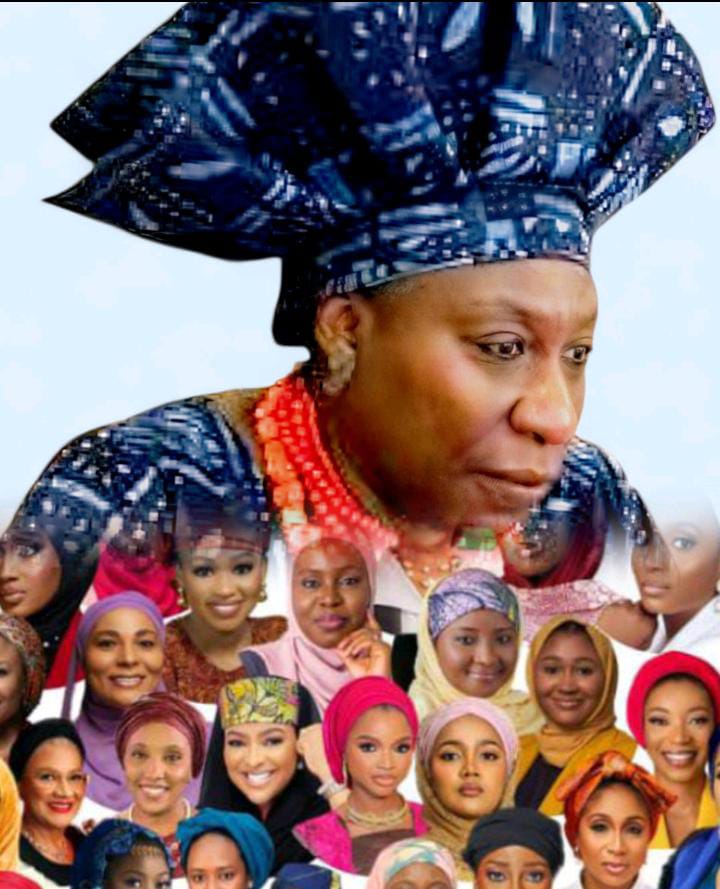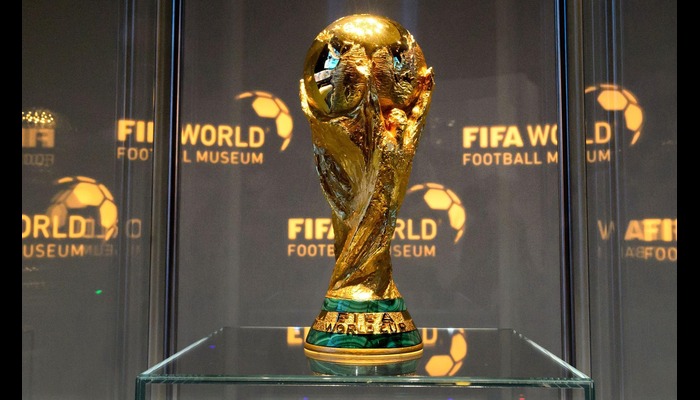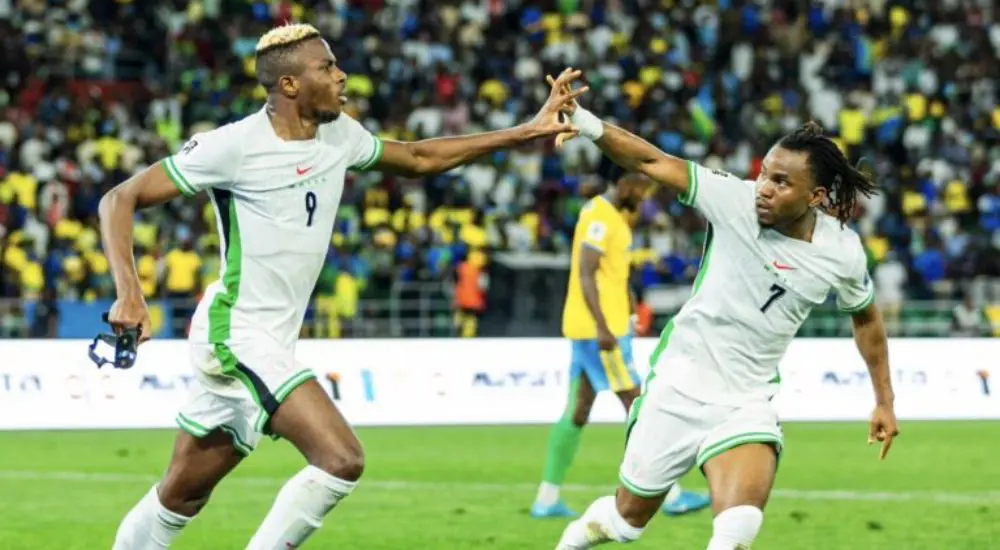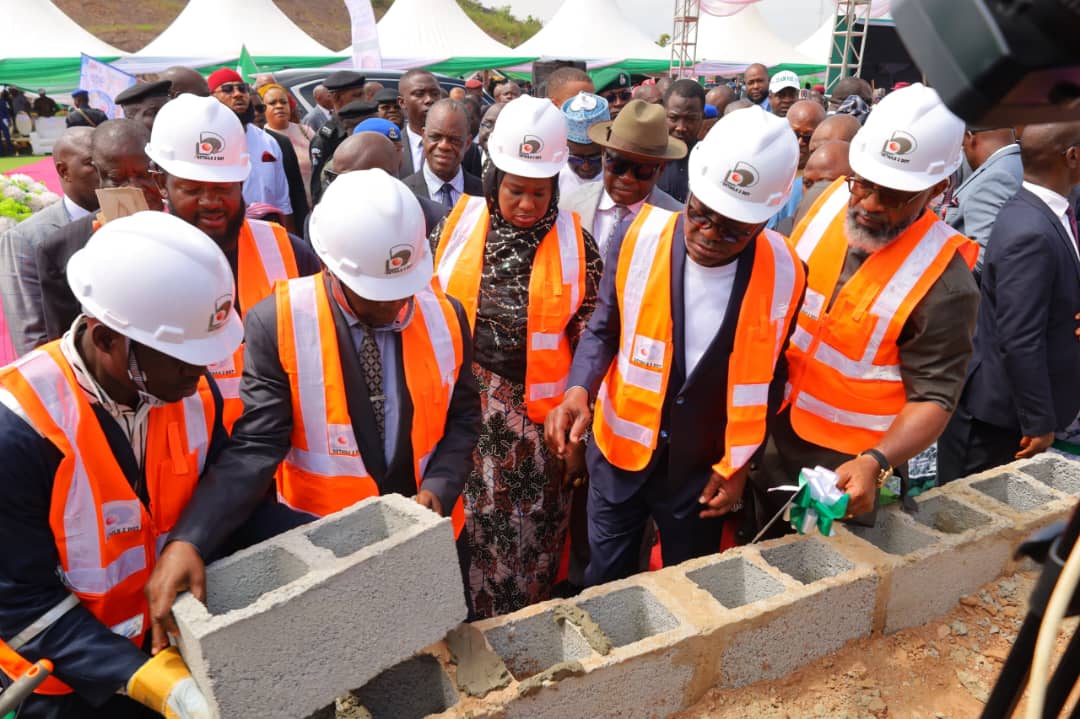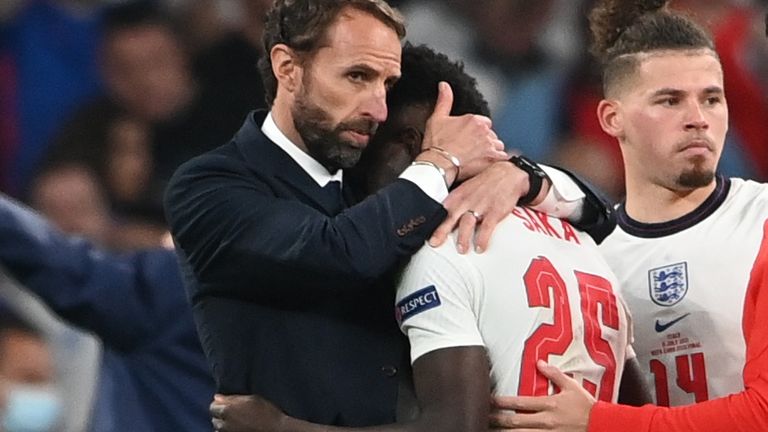The Super Eagles of Nigeria crushed Benin Republic 4–0 in Uyo on Tuesday night, but even Victor Osimhen’s brilliant hat-trick couldn’t save them from missing out on the automatic ticket to the 2026 FIFA World Cup, a result many Nigerians are already calling “a daylight robbery” following controversial scheduling and fixture advantages allegedly granted to South Africa.
While Nigeria dominated their final Group C game at the Godswill Akpabio International Stadium, the celebrations were muted when news broke that South Africa had comfortably defeated Rwanda 3–0 in Johannesburg. The result ensured Bafana Bafana topped the group with 18 points, one ahead of Nigeria’s 17, securing Africa’s automatic qualification slot.
What has infuriated many observers, however, is the growing perception that the qualification system unfairly favoured South Africa. Critics, including Benin Republic coach Gernot Rohr, had earlier questioned the “imbalance” in fixtures that allowed South Africa to play seven home matches out of ten, a luxury not extended to any other team in the group. Rohr described it as “a big advantage” that undermined the fairness of the competition, and Nigerian fans seem to agree.
Despite the odds, the Super Eagles delivered one of their most clinical performances in recent years. Victor Osimhen opened scoring in the 3rd minute with a fine strike from a Samuel Chukwueze assist. He doubled Nigeria’s lead in the 37th minute, again courtesy of Chukwueze’s creative brilliance. The Napoli striker completed his hat-trick shortly after the restart, capitalizing on a defensive mix-up from Benin’s backline to make it 3–0.
Frank Onyeka sealed the rout in stoppage time with a powerful effort from distance, sending the Uyo crowd into delirium, at least until confirmation came that South Africa had clinched victory in Johannesburg. The final whistle in Uyo was met not with joy but disbelief and frustration.
Football analysts have since described Nigeria’s elimination as a “painful technical knockout,” citing administrative lapses and poor planning within the Nigeria Football Federation (NFF). Others pointed fingers at CAF for approving what they called a “logistically skewed fixture list” that gave South Africa a competitive edge.
Social media was abuzz minutes after the match, with hashtags like #JusticeForSuperEagles, #CAFUnfair, and #OsimhenDeservesBetter trending across platforms. Fans accused African football authorities of bias, while some argued that Nigeria’s qualification hopes were doomed the moment the group fixtures were released.
“It’s suspicious that one team got to play seven home games while others barely managed five,” a furious supporter tweeted. “CAF owes Africa an explanation.”
Despite the heartbreak, Nigeria’s campaign isn’t over. The Super Eagles remain in contention through the playoff route, where the four best runners-up across all groups will compete in a mini-tournament scheduled for November in Morocco. The winner of that event will advance to the intercontinental playoffs for one last chance to qualify for the 2026 World Cup in the USA, Canada, and Mexico.
For Osimhen, whose hat-trick brought his tally to eight goals in the qualifiers, the disappointment was evident. “We gave everything, but sometimes football is cruel,” he said after the game. “We’ll fight again in the playoffs.”
As the dust settles, questions linger over the credibility of the African qualification system and the level playing field promised by CAF. For Nigerian fans, Osimhen’s heroics will be remembered, but so will the bitter sense that qualification slipped away not on the pitch, but in the politics of football.



